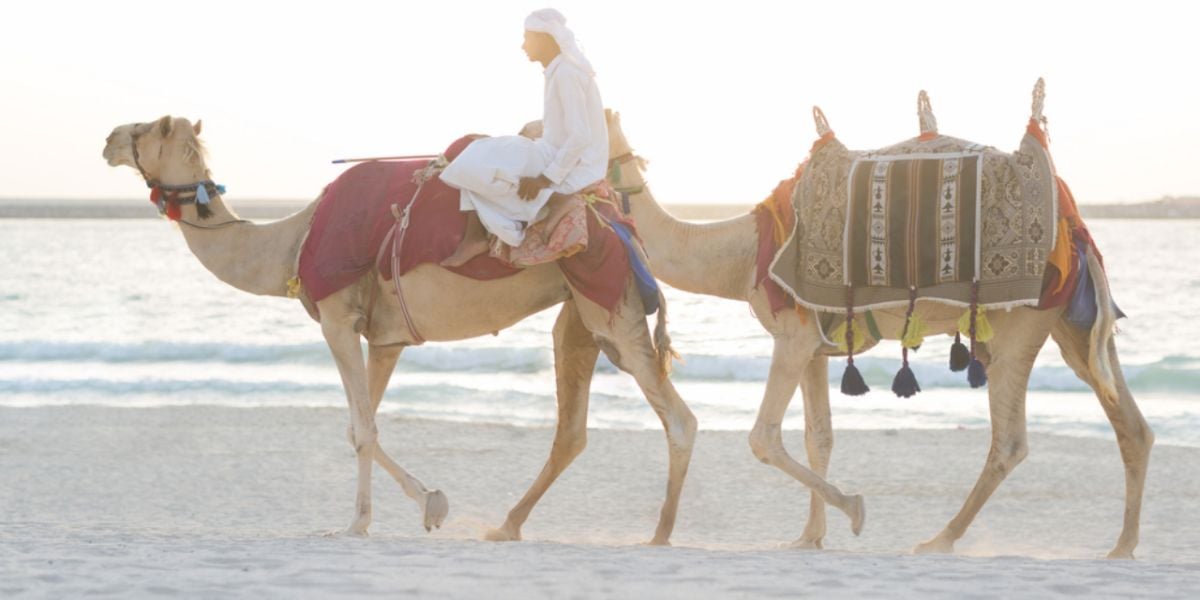
Saudi Arabia was famously known for its conservative society and rules of modesty. Recently, major social changes have been underway in the country making settling in Saudi Arabia much easier.
No more gender segregation in Saudi Arabia
It was once a common practice that unrelated men and women in Saudi Arabia were forbidden to interact in public. Nowadays they can communicate freely, as long as there are no public displays of affection or any harassment. Since December 2019, the Ministry of Municipal and Rural Affairs has ended the requirement for restaurants, cashiers and businesses to have separate sections for males and families.
Where once music and entertainment were forbidden, now malls and stores are playing the music of their liking. At the end of 2019, Riyadh hosted MDL Beast, the largest regional three-day festival of electronic music, with world-renowned artists, along with some Saudi DJs, including women. Locals, expats and tourists (after the new tourist visas were issued in September 2019) enjoyed the first Riyadh season—a few months of celebrations with weekly fireworks, musicals, concerts, wrestling matches, etc. With the exception of the Covid-19 years, Riyadh Season is now happening each year and has become a landmark for entertainment in the capital.
How religious police ended in Saudi Arabia
From 1976 to 2016, social and everyday life in Saudi Arabia used to be under the strict watch of the Mutawwa-Hai'a, also known as the Saudi Commission for the Promotion of Virtue and Prevention of Vice (CPVPV), which was informally known as the religious police. Their role was to make sure Saudis were punctual in their prayers, abided by all the social norms, dressed appropriately, genders did not mix — and more. The religious police used to hold a lot of power in the country and were able to detain people for misbehavior.
In 2016, the powers of the CPVPV were sharply curtailed. While they still function today, their powers are now minimized. They are unable to detain, question, or ask anyone for identification. If there is an offense to be reported, they need to report back to police for action to be taken.
Dress code in Saudi Arabia
Saudi women generally wear their traditional abaya—a long black robe that covers your body from shoulders to ankles. It was once limited to a heavy black material, but nowadays you will find the abaya closely resembling a long dress—in different fabrics, colours, and designs. Foreign women are required to dress modestly and cover up. The abaya is no longer mandatory, although it is still very prevalent amongst Saudis and foreigners to a degree.
Men are freer to wear whatever they want, except shorts above the knee and tank tops. In September 2019, the Public Decency Law was established to clarify the new dress code regulations.
Saudi men will usually wear the thobe, which is the traditional long white robe. The thobe is also the formal attire for Saudi nationals to wear at work. Some men will also wear the traditional headdress which is either the ghutra (plain white) or the shemagh (with a checkered red pattern). While some will wear it every day, for others it might be reserved for special occasions, such as Eid.
Gastronomy in Saudi Arabia
The official and most popular dish in Saudi Arabia is the kabsa. Kabsa is an aromatic rice dish that is served with chicken, beef, or lamb. Depending on the region, camel meat, or even fish, is also served with kabsa. There are a large number of variations in the blend of spices used for the rice. The traditional way of eating Kabsa is for it to be served in one large sharing dish, whereby everyone sits on the floor and eats using their right hand.
Saudi Arabia has developed into a huge food gastronomy hub. This is particularly true of Riyadh which has recently seen a surging interest in fine dining. You can find cuisines from all over the world.
Leisure and shopping in Saudi Arabia
It's a great time to be an expat in Saudi Arabia when it comes to leisure activities or shopping. The popular entertainment venues of concerts, sport events and cinemas are now booming, and the country is a real paradise for any shopaholic with all fashion apparel, haute couture, and luxury goods available.
Social media and censorship in Saudi Arabia
In Saudi Arabia, everyone needs to be mindful of their actions and behaviors, even on social media channels. Anything viewed to be negative towards the ruling family, authorities, notable religious leaders, religion, and the country is not allowed.
Several websites are banned and inaccessible. Despite that, Saudis are very active social media users. The platforms preferred by the locals are Whatsapp, TikTok, Snapchat and X, with Facebook lagging behind.
We do our best to provide accurate and up to date information. However, if you have noticed any inaccuracies in this article, please let us know in the comments section below.








